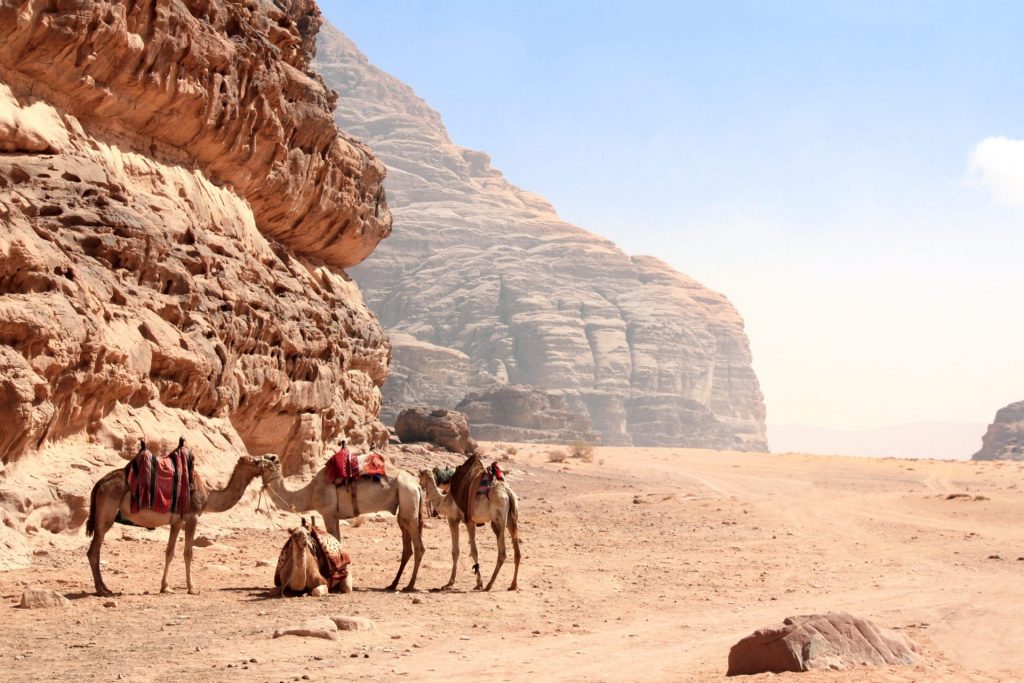heading
PROJECT: GOVERNANCE, ACCOUNTABILITY AND LEARNING FOR WATER SUSTAINABILITY (GOAL-WATERS)Jordan
Mitigating impacts of drought with nature-based solutions by applying Managed Aquifer Recharge (MAR) in the Amman-Zarqa, Yarmouk, Mujib and Azraq water basins.

Challenges
Jordan is the second most water scarce country in the world, and this undermines the country’s growth and development. Water supply is based on a rationing system to cope with the deficit and ensure equitable distribution. If the supply remains constant, per capita domestic consumption is projected to fall to 90 cubic meters per person/year by 2025, putting Jordan in the absolute water shortage category, and endangering public health.
Drought in Jordan has a detrimental impact on water resources. The nature, location and scale of drought effects have yet to be thoroughly investigated. National response occurs on an ad hoc basis.
The government of Jordan has recognized the importance of strengthening the national water governance capacities in drought management and has developed an institutional set-up and endorsed the national drought management policy in the water sector.
This new setup has led to the establishment of a drought management unit at the Ministry of Water & Irrigation, which will lead and facilitate drought-related planning and management interventions. However, current capacity and resources are still not adequate enough to lead such interventions. Moreover, there is a weak understanding of the underlying causes of drought vulnerability in the water basins.
Strategy
Drought vulnerability assessments were carried out under the leadership of the drought management unit of the Ministry of Water and Irrigation in four major water basins to define the underlying causes of vulnerability focusing on the weaknesses of the adaptive capacity.
Dialogues were convened with all concerned stakeholders to prepare a drought mitigation and response priority list for each basin. The priority lists were defined based on the combination of science-based and traditional knowledge of the stakeholders.
In 2020, the activities focused on applying nature-based solutions to build resilience in the Azraq groundwater basin resources and mitigate the adverse impacts of drought on the fragile socio-ecological system.
The Managed Aquifer Recharge (MAR) approach is used, capturing and draining rainfall water coming from the highlands into the groundwater system before it gets evaporated in low lying flooded wadis. The MAR approach also controls the saline water intrusion from the mudflat.
In addition, GoAL WaSH is supporting pilot projects in different locations of Jordan to put drought management (water saving and water efficiency) in place.
Achievements
The drought assessments are important sources of knowledge to inform the decision-making processes on the economic consequences of drought management actions and inactions.
The drought vulnerability assessment revealed that the Azraq water basin is highly vulnerable to drought, mainly due to over abstraction of groundwater, and climate change. The basin holds socio-ecologically significant ecosystems and provides the capital city of Amman with more than 18 million cubic meters of water, not to mention other users such as the wetland, farmers and people of the Azraq Basin.
The Ministry of Water and Irrigation prioritized measures to enhance the natural recharge in the basin to sustain freshwater resources. The concept of enhancing the natural recharge is reviving traditional water harvesting techniques as well as enhancing the infiltration of surface water into the underground system.
A pilot project was implemented at municipal level to reuse treated grey water from household and public facilities. Grey water units were installed in households and public schools to offset the deficit of community water due to drought.